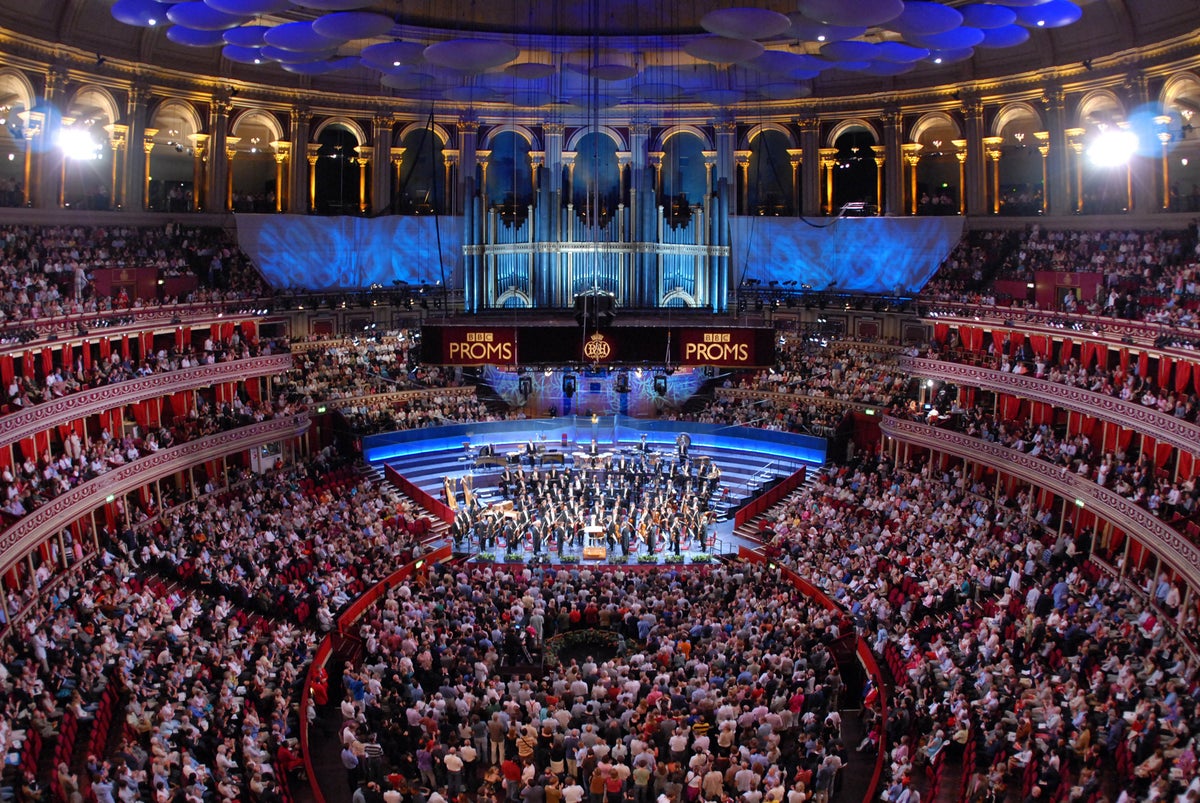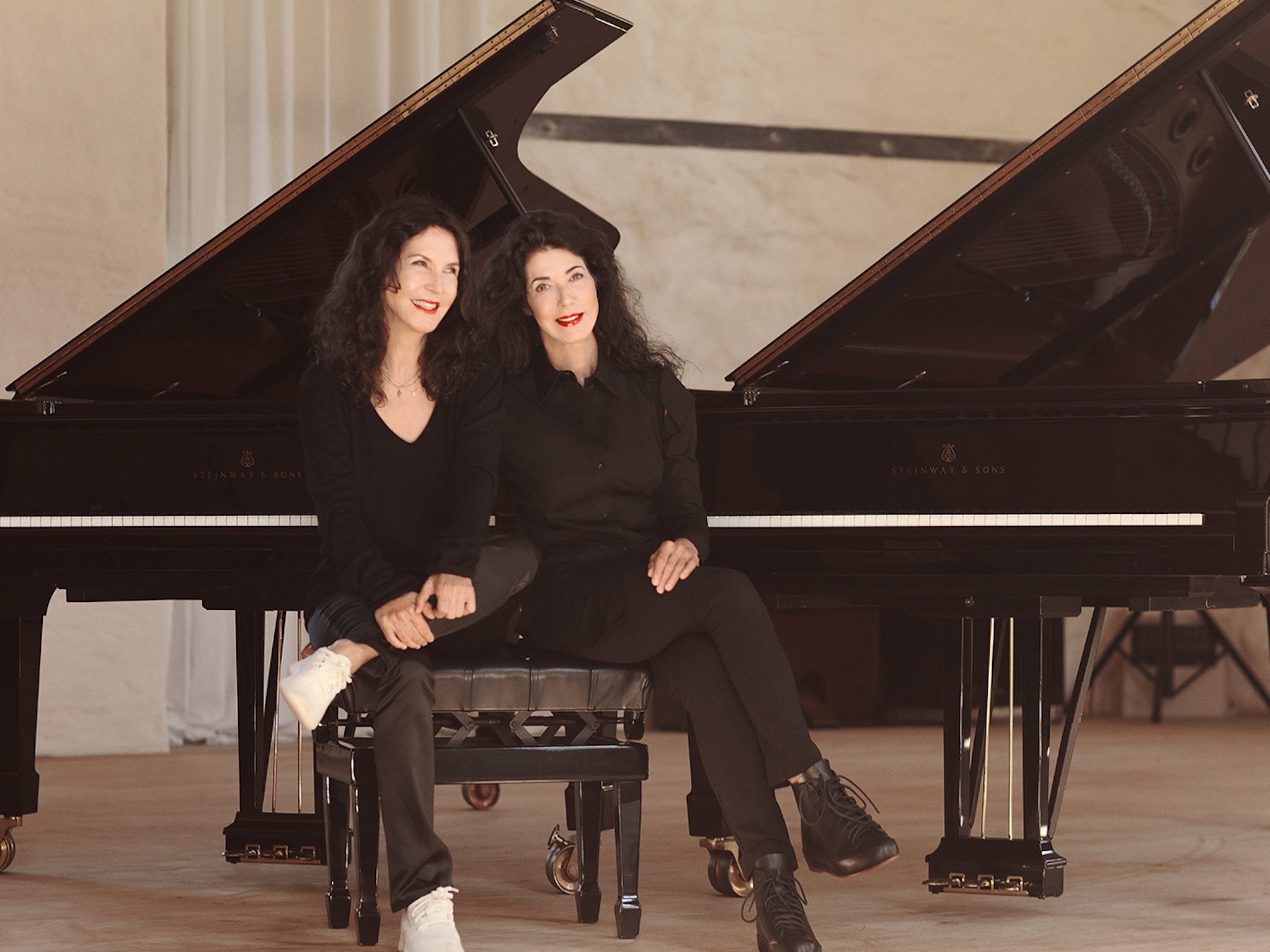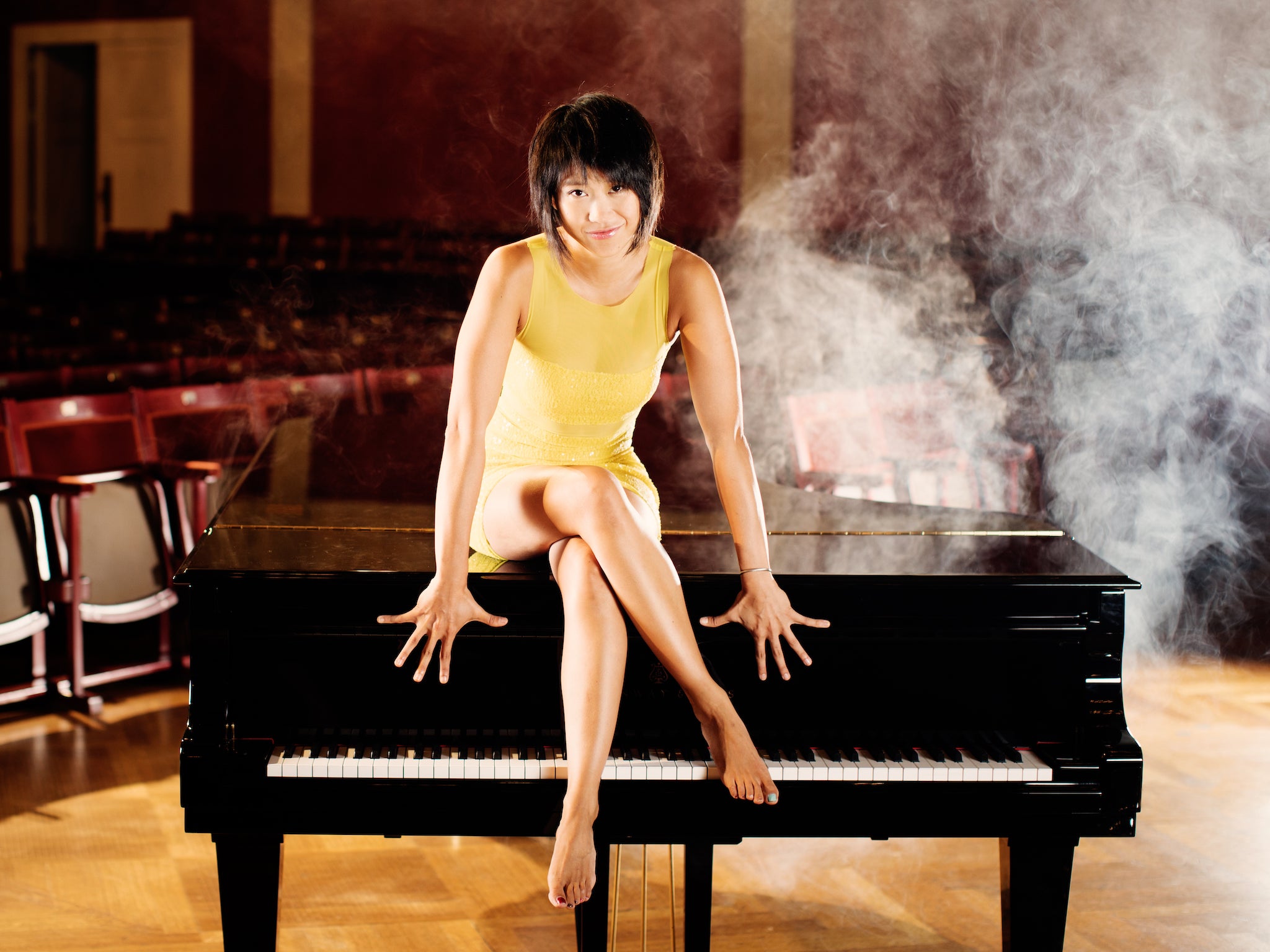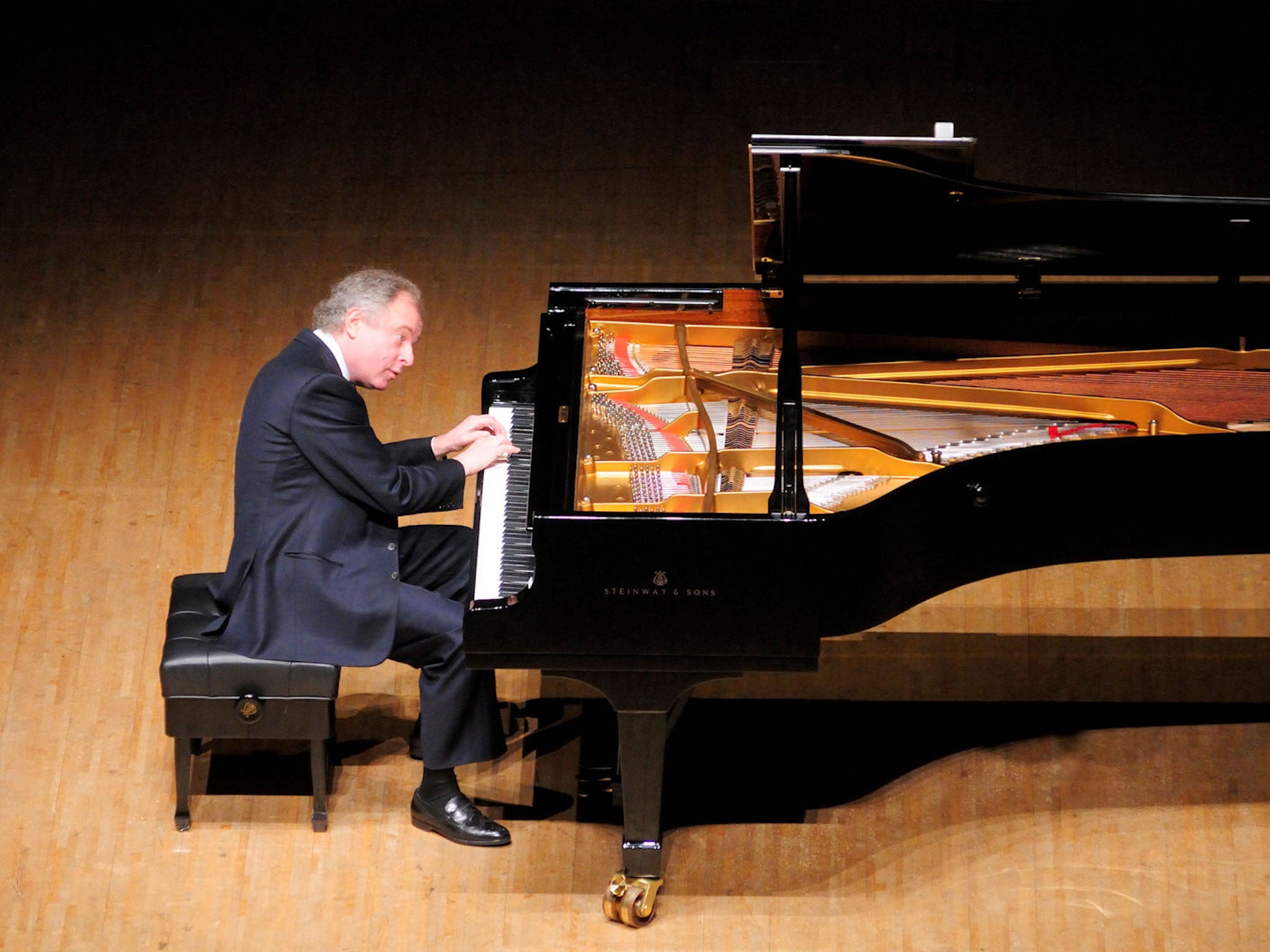
What are the Proms for? Until recently, the aim of the world’s biggest classical music festival was always clear: cram in as much of the standard classical repertoire as possible, while inserting a rich leavening of forgotten works and freshly commissioned new ones. Now, on the eve of the Proms’ 128th season, those goals are history.
The hiatus of the pandemic – during which the Proms ran in reduced and partly digital form – has led to a rethink, with radical results: the priorities now are governed by a social and geographical drive for inclusivity, plus a fervid search for ever more ways of enticing in a youthful and “non-musical” audience. The latter aim is of course not new, and with concerts in Belfast and Bristol, Truro and Glasgow, the BBC can indeed claim to be covering the country. However, some of this year’s events are experimental to a point where it’s impossible to tell in advance whether they will work, or whether they will prove damp squibs.
But there’s no caveat emptor about the 12 events I have singled out here, and many more sound promising. I’m not sure what to expect of Missy Mazzoli’s Violin Concerto (Prom 38), for example, which evokes the history of faith-healing, or countertenor Anthony Roth Costanzo’s melding of Handel with Philip Glass at the Printworks nightclub (3 Sept), but they sound intriguing. And I will be tuning in to the operas dotted through the programme, to stunning young instrumentalists like pianist Behzod Abduraimov and violinist Pekka Kuusisto, and to the ethnically diverse Chineke! Orchestra, as they bring their electricity to Beethoven’s Ninth.
Prom 1 (Royal Albert Hall, 15 July): First Night of the Proms 2022
It’s impossible to imagine a more thrilling opening gambit than Verdi’s Requiem. This performance has a solo line-up led by the South African soprano Masabane Cecilia Rangwanasha, who last year won the song prize at the Cardiff Singer of the World competition. This work is an opera in all but name, and Rangwanasha’s pedigree is perfect, in that she’s risen through the ranks at Covent Garden, as has the British-Italian tenor Freddie De Tommaso, who is the tenor soloist in this concert.
Prom 12 (23 July): Prom at Sage Gateshead
It’s not often enough realised that this venue is one of the most beautiful in Britain, and this event will show it at its best. The main work in the programme, Dvorak’s New World symphony, will be prefaced by a performance of John Adams’ Shaker Loops, whose rapid repetitions evoke the dances of the New England Shaker community.
Prom 19 (RAH, 30 July): Puccini’s ‘Il Tabarro’
This brutal one-act tragedy takes place on a barge in Paris, where the bargee suspects his wife of infidelity, with sanguinary consequences. The setting may be squalid, but the music is Puccini at his most vibrant, and the big draw here – and leading a diverse cast will be Natalya Romaniw as the bargee’s wife Giorgetta. With a voice of great beauty and power, this Welsh-born soprano is enjoying a meteoric career after her acclaimed Tatyana in Eugene Onegin at Garsington, where she has just triumphed in the title role of Rusalka.
Prom 23 (RAH, 3 Aug) Relaxed Prom
The brainchild of conductor Nicholas Collon and presenter Tom Service, this event – which centres on Beethoven’s fifth symphony – caters to those who may prefer to attend a performance in a relaxed environment. While Service will provide the ideas, Collon and his Aurora Orchestra will break the work down to its component parts, before giving it a complete performance from memory, which is a major feat in itself.

Prom 26 (RAH, 5 Aug): Katia and Marielle Labèque
Julian Anderson is a leader among British symphonists, and here he will unveil his new Prague Panoramas symphony. But the other stars of this concert reflect a sweet human story. Katia and Marielle Labèque – now in their seventies – have long been a glamorous duo in the concert-pianism firmament, and the Soviet-born conductor Semyon Bychkov is married to Marielle. Family loyalty and mutual professional respect ensure that all three perform together, and in this concert they will blend their talents in Martinu’s Concerto for Two Pianos.
Proms 28-29 (RAH, 7 Aug): Andsnes’s Mozart Momentum
‘Mozart Momentum’ – the Norwegian pianist Leif Ove Andsnes’s latest stunt – is a concert series in which the works of Mozart’s most prolific years are brilliantly showcased, with Andsnes at the keyboard throughout. Thus we get four piano concertos, a piano trio, a piano quartet, and some concert arias, all performed by the youthful Mahler Chamber Orchestra with soprano Christiane Karg doing the vocal honours. A third concert takes place in the Battersea Arts Centre.
Prom 35 (RAH, 12 Aug) Yuja Wang
This concert by the Oslo Philharmonic under Klaus Makela’s baton offers two majestic tone poems – Sibelius’s coolly mythical Tapiola, and Strauss’s passionate Ein Heldenleben – but the piece de resistance will be Liszt’s first piano concerto, thanks to the soloist, the elfin Yuja Wang. This Chinese pianist combines personal magnetism with the most extraordinary virtuosity, drawing the crowd both by what she wears (sometimes a mere designer bikini), and by her preternatural control over towering mountains of notes.

Prom 45 (RAH, 21 Aug) Amjad Ali Khan
Since Ravi Shankar’s death, Amjad Ali Khan has become everyone’s favourite North Indian musician. While Shankar played the sweet-toned sitar, Khan’s instrument is the sarod, with its deeper and more resonant sound. Khan comes from a dynasty of musicians stretching back six generations, and his sons Amaan and Ayaan – who will join him on stage here – are continuing that tradition. Learning Indian music, he says, is like an elephant walking – ‘you must undertake it with grace and dignity’. That’s how we should listen to him, too.
Prom 47 (RAH, 22 Aug) Aretha Franklin
This concert should be a blast, as tribute is paid to the Queen of Soul by her successor Shelea, supported by the Jules Buckley Orchestra. We may not have been present at the concert Franklin gave at the New Temple Missionary Baptist Church in LA in 1972, but many of us have seen the film, or got the record (Amazing Grace). Singer-songwriter Shelea will perform the highlights of Franklin’s repertoire, and will evoke memories of the great singer’s exploits for the Civil Rights movement, which remains as relevant as ever in America today.

Prom 50 (RAH, 24 Aug) Choral chamber music
Late-night concerts in the RAH have a very particular charm, and the one I most look forward to is being given by Harry Christophers and his brilliant ensemble The Sixteen. The highlight will be Tallis’s extraordinary 40-part motet Spem in alium, but everything in the programme is special, from John Tavener’s radiant A Hymn to the Mother of God to Byrd’s darkly resonant Diliges Dominum, via works by Gorecki and James MacMillan.
Prom 57 (RAH, 29 Aug) Bach B minor Mass
The Proms wouldn’t be the Proms without one of Bach’s great Masses, and this one – into which he poured everything he knew about music, and everything he felt – has unique majesty. From the thrilling opening with its slowly climbing chords, this is a work which seizes and holds you spellbound for its two-hour span. With fabulous soloists, and the Choir of the Age of Enlightenment under John Butt, this will be an unforgettable event.
Prom 64 (RAH, 4 Sept) Schiff’s Beethoven
Classical music by one pair of hands, on an unamplified piano, for an audience of 5,200 in a vast, cavernous space: a recipe for an empty hall? Absolutely not. When this Hungarian-born Austro-British pianist plays Beethoven, tickets are always hard to come by, and here he’ll play the last three sonatas which cast a unique enchantment. There will be no interval: he will want us to follow the great composer’s line of thought, via a gamut of emotions, towards one of music’s most transcendent moments, where the mind floats free in a haze of ascending trills.







